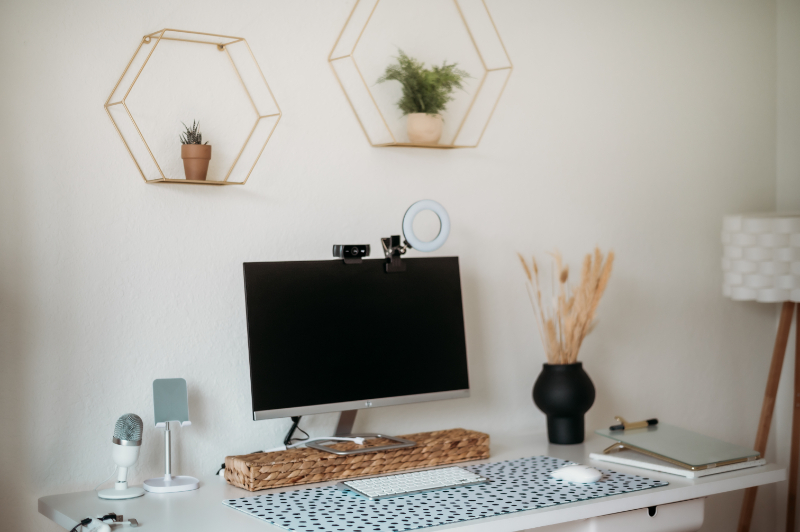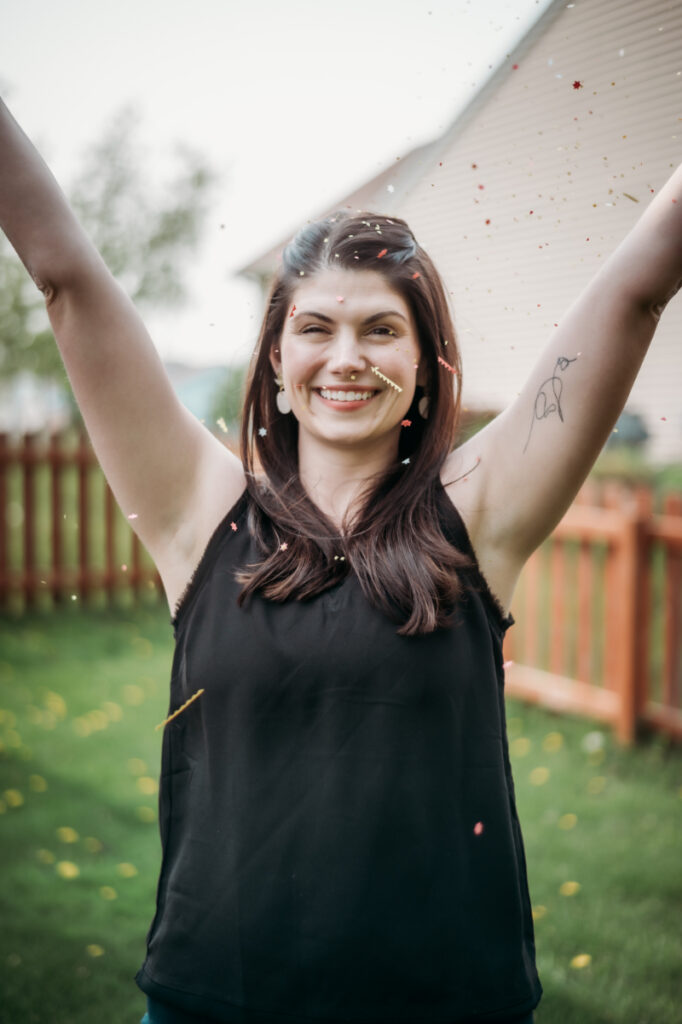When anxiety shows up, your inner voice often gets louder—and not in a helpful way. Instead of support, it might sound like criticism. Instead of calm, it might spiral into panic or self-blame.
That voice can be convincing. It tells you you’re doing it wrong, that you should be “handling this better,” or that something is deeply wrong with you. But here’s the truth: you’re not broken. You’re overwhelmed.
But here’s what I’ve learned as both a therapist and someone who’s lived through this: the way you talk to yourself matters. A lot. Especially when anxiety shows up and tries to take over. Learning how to be kind to yourself isn’t a fluffy self-care trend. It’s a real, essential part of healing your relationship with your mind—and building resilience that lasts.
So, let’s talk about what that looks like in real life—and how to start making the shift today.

How Anxiety Warps Your Inner Dialogue
When you’re anxious, your brain shifts into threat mode. It scans for danger, overanalyzes every interaction, and tries to protect you by imagining the worst-case scenario.
The problem? Anxiety doesn’t just focus on the outside world. It turns inward too. Suddenly, your inner voice isn’t supportive—it’s critical, panicked, and stuck in loops of doubt.
You might find yourself thinking:
- Why can’t I just be normal?
- What’s wrong with me?
- I’m so annoying—no wonder people pull away.
- This is my fault. Again.
I hear versions of these every week from clients. And yes, I’ve said them to myself too. When that voice becomes the soundtrack of your day, it’s not just discouraging—it’s exhausting. And it reinforces the anxiety, making it harder to move forward.
Why Harsh Self-Talk Makes Anxiety Worse
You might think tough self-talk keeps you accountable or pushes you to “get it together.” But harshness doesn’t heal. It actually triggers more anxiety, not less.
Here’s what really happens:
- You internalize fear and shame instead of addressing the root of the anxiety.
- You become hyper-aware of your mistakes, but not your wins.
- You stop trusting yourself, which makes future anxiety feel even scarier.
When you’re already overwhelmed, self-criticism adds fuel to the fire. It makes you feel smaller, stuck, and ashamed of having emotions in the first place. And that’s the exact opposite of what you need in those moments.
(When learning how to be kind to yourself, you don’t need to be harder on yourself. You need to feel safe inside your own mind.)
How to Rewire Your Self-Talk for Anxiety Relief
The good news? Self-talk is learned—and that means it can be unlearned and reshaped. Changing the way you speak to yourself doesn’t happen overnight, but it does happen with practice. Here’s where to start when learning how to be kind to yourself:
1. Notice your patterns
Start paying attention to your inner dialogue—especially in anxious moments. Are you blaming yourself? Replaying conversations? Saying things you’d never say to a friend?
Awareness creates space. Once you see it, you can choose a new response.
2. Challenge the critic
When that harsh voice pipes up, try asking, Whose voice is this really? Often it’s an echo of past experiences—not the truth of who you are. You can respond by saying (even out loud if you need to), I don’t have to believe everything I think.
I keep my Break Free Action Cards on my desk and in my bag for this exact reason. Each one is a simple but powerful reminder that anxiety doesn’t get the final say—and I don’t have to treat every thought like it’s a fact.
3. Practice new language
It might feel awkward at first, but try phrases like:
- This is hard, and I’m doing my best.
- I’m allowed to feel anxious without judging myself for it.
- Even if today’s messy, I’m still showing up.
You’re not sugarcoating reality—you’re creating safety. And safety calms the nervous system, which makes healing possible.

Practical Ways to Be Kinder to Yourself
You don’t have to spend hours journaling or doing affirmations to shift your self-talk. Tiny, consistent actions can make a big difference. Here are a few that have helped me (and my clients):
1. Use your body to ground your mind
When anxiety spikes, try putting your hand on your chest or wrapping your arms around your torso. That physical connection reminds your brain: I’m safe, I’m here, I’m okay.
Tools like the Break Free Air Fresheners can also anchor you in the moment. The scent is calming, but it’s the words that hit—especially when you’re spinning.
2. Choose visual cues that support your self-talk
I like to keep sticky notes, stickers, and even background images on my phone that reflect the kind of voice I want to have. One of my favorites from the Break Free Sticker line says “Rise Up. Break Free. Be Badass.” That’s not just a slogan—it’s a mindset I return to when anxiety wants to take over.
3. Make a self-kindness list
List five things you can do when you notice you’re being hard on yourself. It could be texting a friend, stepping outside, repeating a grounding phrase, or simply resting without guilt. Keep the list visible.
When you feel stuck, you won’t have to search for a way forward—it’ll already be there.
What Self-Compassion Looks Like in Difficult Moments
learning how to be kind to yourself doesn’t mean you have to feel good all the time. It means you stop fighting yourself for having human emotions.
Real self-compassion sounds like:
- I don’t like this feeling, but I can sit with it for a while.
- I’m allowed to pause. I don’t have to earn rest.
- I can hold space for anxiety without letting it run the show.
And sometimes, it sounds like reaching for real support. Because regulating your emotions is hard work—especially when OCD or anxiety is in the mix.
If you’re ready to go deeper with this, my OCD and Anxiety Recovery Blueprint is a great place to start. I created it to help you build the skills, insight, and confidence to handle anxiety without turning on yourself. It’s not just information—it’s a step-by-step process to shift the way you relate to your thoughts and feelings.

You Deserve a Kinder Inner Voice
Learning how to be kind to yourself when anxiety kicks in is a skill. One that takes time, repetition, and grace. But it’s also one of the most powerful shifts you can make for your mental health.
You don’t have to bully yourself into healing. You can guide yourself with compassion. And you can show up for yourself the same way you would for someone you love.
And you don’t have to do it alone. Whether you’re working through exposures, trying to stop compulsions, or just having a hard day—you’re still worthy of gentleness.
If you need help putting this into practice, check out the OCD and Anxiety Recovery Blueprint, or browse the Break Free collection for tools that keep your recovery in reach.
Want more? You can also explore my other resources like 5 Essential Strategies for Managing Anixety and Intrusive Thoughts or 10 Empowering Scripts for Anxiety and Intrusive Thoughts. They’re designed to help you take real steps forward, even on the hard days.
You’re doing the work. You’re already enough. And your voice—your real voice—is worth listening to.
most popular episodes
Love my podcast?
Episode 112: Postpartum OCD and False Memory OCD
Imagine how in depth I can go in an online course. Instantly downloadable and game-changing. Take the next step towards an amazing life.